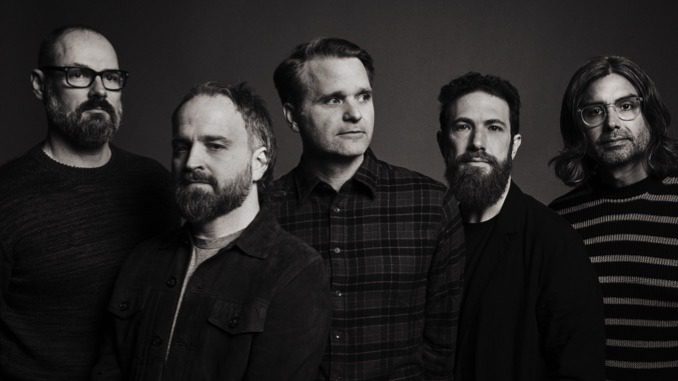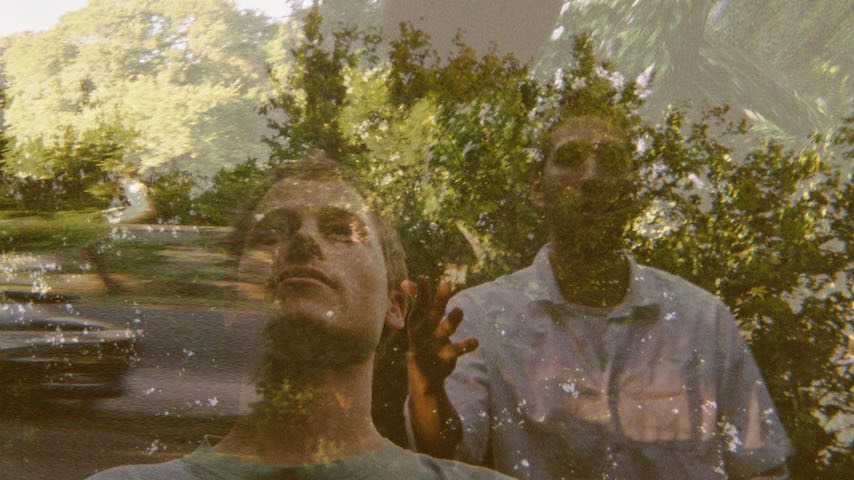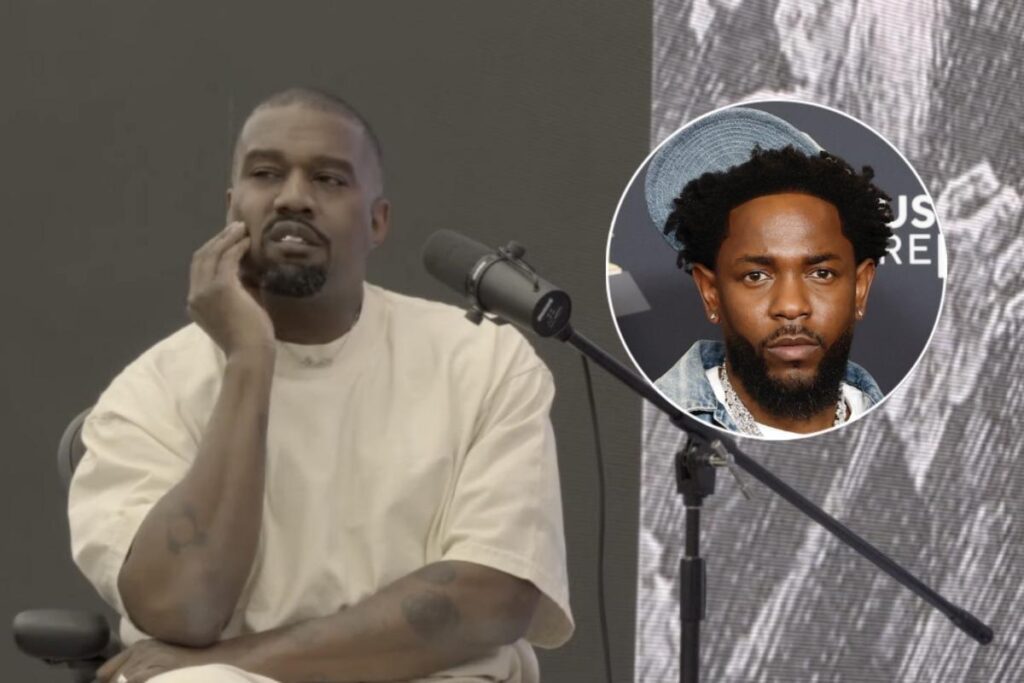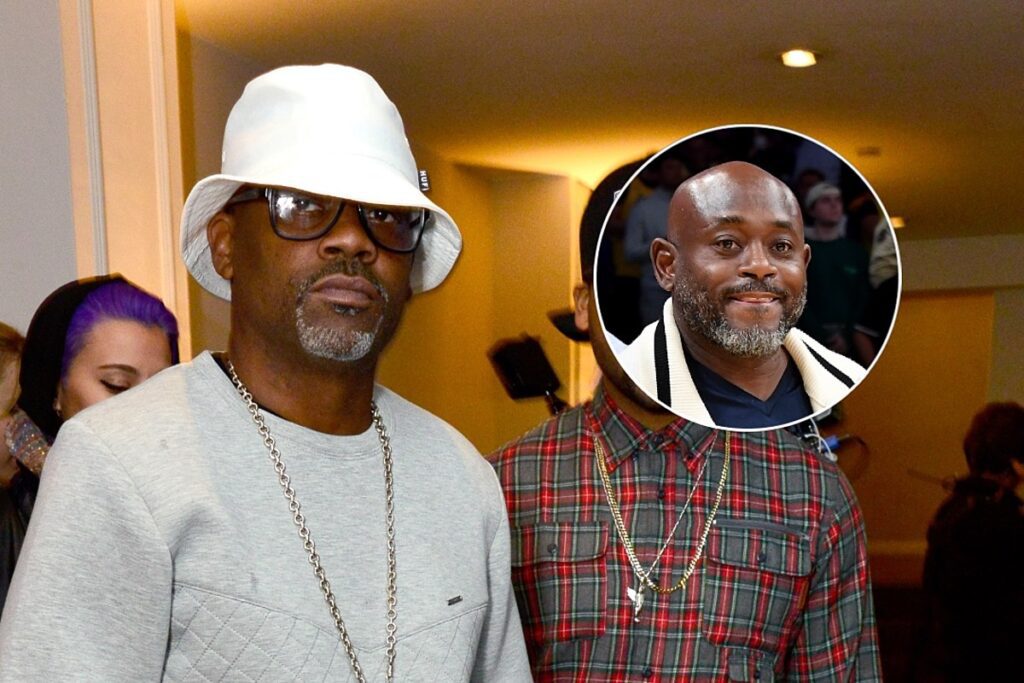It’s not enough to simply accept a piece of art on its obvious surface level, reckons ace tunesmith Ben Gibbard of Death Cab for Cutie. For 10 band albums now, plus solo sets and efforts with his old combo The Postal Service, the sonic muralist has sketched gorgeous pneumatic panoramas that contain more truth in their tiny brushstroke details than is initially apparent on first inspection. Which easily accounts for the band’s repeated Grammy nominations over the years, eight in all. Gibbard’s quirky indie-rock songs are the best kind—growers, like the classic “Soul Meets Body,” that reveal the depths of their brilliance after consecutive listens. The idyllic new Asphalt Meadows—which sets up a paradoxical conundrum in its title alone—follows intellectual, multi-layered suit.
To illustrate his point about digging for complexity, the vocalist—who just turned 46—notes his recent pre-pandemic purchase of the classy Criterion Channel app, a visual feast for film geeks of all stripes. He still hasn’t explored all of its diverse genres. “But talk about variety,” he enthuses. “There’s just so much nutritious media on that app. But it quickly became a joke between my wife and I—we’d be watching an old movie, and she would see a dog on the screen, turn to me, and say, ‘That dog is dead now. And that person has been dead for at least six years.’ It became this bit that we would do, a kind of sardonic joke. But it was also an acknowledgment of the impermanence of life—everybody in this movie is dead, and yet here we are, 70 years later watching La Notte and taking inspiration from it, and we’re living in that world for a couple of hours with these people who have been gone for a very long time.”
Dig deep enough and Gibbard’s basic tenets reveal themselves, like great art is timeless, and remains strong long after the vessels that created it have ceased to exist. The John Congleton-helmed Asphalt Meadows cloaks more. The title cut itself recalls the gentle palliative of A Walk Across the Rooftops-era Blue Nile, and establishes the album’s topographical focus, with melodies flickering past like snapshots from a tour bus window—“Rand McNally,” “Wheat Like Waves” and ”Foxglove Through the Clearcut.” There are forlorn reminiscences of bygone (pre-Covid?) days like “I Miss Strangers,” “Fragments From the Decade” and “I’ll Never Give Up On You.” And all feature latent lyrical threads listeners can tug on to unravel bigger stories. Gibbard also stayed occupied during lockdown by broadcasting Live From Home sessions, issuing a voter’s-rights Georgia EP, collaborating with Tycho and Chance the Rapper, and overseeing an Ocean Child: Songs of Yoko Ono covers anthology for her 89th birthday this year. Phoning from a DCFC tour stop in Chamonix, France, he actually had time to discuss all of this.
Paste: I was watching Almost Famous for the umpteenth last night at 4 a.m., and that great “Tiny Dancer” scene came on, where one common tune unites an entire feuding tour bus. And now Elton John’s classic has boomeranged back as a 2022 duet with Britney Spears, so you can never underestimate the true timeless power of a great song.
Ben Gibbard: Well, yeah! Not so long ago, I was talking to somebody, and they were like, “Yeah, Kate Bush’s ‘Running Up That Hill’ is the No. 1 song in America!” And I was like, “What are you talking about?” But it was before I’d seen the most recent season of Stranger Things. So I think that there are many things about living in these times that are frustrating, but I do think that it’s kind of incredible that there are these other corners of our culture that have this way of bringing great songs back into the mix, and for a bunch of people who’ve never heard Kate Bush—let alone heard that song—to all of a sudden have an in to her discography and her music is pretty phenomenal. And you have to kind of begrudgingly thank Netflix for it, you know?
Paste: Was there a time during the pandemic when you lost sight of the power of a great song? Or were you always aware?
Gibbard: No, I feel like I’m always aware of it. But it’s only out of self-preservation, you know? Or self-interest. But I think that—by being primarily a fan of music, and as someone who makes music—I recognize how important particular songs have been in my life, and how certain songs and maybe the music I listened to when I was younger still has resonance in my life, for whatever series of reasons. And that, by making music, by the sheer act of making music, you are probably doing that for someone else. You are probably providing that kind of a soundtrack to someone else’s life. So I think that during the pandemic—certainly in the depths of it, when we were unable to do the parts of our job that we really love, like being out playing music for people, being in front of people and having that feedback loop of connection through the music that we’re making—I certainly settled into music that meant a lot to me, and I’d get messages from people about how much our music meant to them. So at the end of the day, I just feel so fortunate to be part of this long-standing tradition. And I think more than ever, the older I get, the more I recognize how fortunate we are that we get to participate in people’s lives in the way that we’re able to through the music that we make.
Paste: The vibe I pick up on this album is not just missing performing, but missing just looking out the window of a cross-country tour bus.
Gibbard: Yeah. Or in the case of “Foxglove,” a tour van. But yeah, definitely. I remember a conversation I had with Nick, our bass player, at some point, when we were all locked at home, and he said something along the the lines of, “I’m never gonna complain about an under-attended Sunday show in any fill-in-the-blank small town ever again.” Because all this time that we spent away from doing the thing we love really emphasized how fortunate we are to have called it our job for as long as we have, and also how much we love it, and how much of a reason for getting up in the morning it is. I think I certainly wouldn’t wish the last few years on my worst enemy, but I think it’s given us all a much-needed sense of perspective.
Paste: Thomas Mann once told us, “You can never go home again.” But at one point, you really try to with wistful reflections like, “Prefab Sprout coming out of your ’90s Accord with mismatched doors.” That’s quite specific and evocative.
Gibbard: Well, thank you. That song was kind of written for a friend of mine from the band Stars, and it’s one of those partially fiction, partially based on true events kind of songs. I just had this indelible memory of us driving around, listening to a Prefab Sprout record—one I had not heard, but he turned me onto it, and then it became this record that we kind of connected over.
Paste: “Rand McNally” brings up another retro image. Like, “Kids, sit down and I’ll show you an actually pre-GPS atlas!”
Gibbard: Exactly. I’ve always really liked antiquated references in songs. There was a White Stripes song, and it was called “Doorbell,” and the hook was, “I’m thinking about my doorbell and when you’re gonna ring it.” And even at the time that song came out, the idea of going to someone’s house and ringing their doorbell? In this day and age, to show up at someone’s house and ring their doorbell? It’s almost rude to do that now. Now with texting and emailing and everything else, if I was walking by your house and I wanted to stop by, I would text you first, like, “Hey, is it cool if I stop by your house? I’m around the corner.” The way it used to be, if you were walking by somebody’s house, you’d go knock on the door or ring the doorbell. So I look forward to any opportunity I get to bring antiquated references into songs, because I think for the people that get them, they’re really valuable, and they also give the song a particular sense of time and place—a time that is not now. And that’s something I really enjoy doing.
Paste: You may have described one of the few upsides of our impersonal modern era—no more Jehovah’s Witnesses at your pandemic door.
Gibbard: Ha! If somebody’s knocking at your door, you know someone’s trying to sell you something, they’re a Jehovah’s Witness, or something terrible has happened. It’s very rarely just a friend stopping by, and I kind of miss that. But I will admit, though, when the doorbell does ring, I’m like, “Who is ringing our doorbell? It can’t be a friend—they would have texted first!” I live in Seattle, and I think it wasn’t too long ago that my wife and I were walking by a friend’s house, and we just said, “Let’s go knock on their door! Let’s go see what they’re doing!” And they kind of came to the door, a little disheveled, going, “Oh! What? What are you guys doing here? Were we supposed to meet somewhere? Am I forgetting that we had a date or something?” And I was like, “No, no, no—we were just walking by and wanted to see how you guys were doing.” And I think during the pandemic we would do that, too—we would go for a walk or we would drive around, and we’d knock on somebody’s door or ring the bell, and then just kind of stand on the porch, talking for a bit. That’s happened a couple of times in the last couple of years.
Paste: There was another eerily prescient moment in Almost Famous when Jimmy Fallon becomes the band’s new jet-setting manager, and he informs them, “If you think Mick Jagger’s going to be out there, still trying to be a rock star at age 50, you are sadly, sadly mistaken!” And here we are.
Gibbard: Ha! Well, yeah! I think rock and roll as a music—once it was discovered by white people—it began as a fad, right? It began as something nobody saw anyone could have a career at, let alone make an album. And I often think about that time, with bands coming out of the ’60s, and the first real slate of artists that were taking Chuck Berry-styled rock and roll into outer space and all these new places. And no one had grown old in the medium yet—no one had even become middle aged, let alone grown old. And this might be a slightly reactive thing to say, because I’m trying to protect my own choice to be a middle-aged rock and roller, but the older The Rolling Stones are getting, and people say, “Can you believe these guys are still doing it in their 50s? Their 60s? Or their 70s?” Or whatever. My response is, “Well, yeah, of course I can!” People love that music! And people wanna see and hear the artists that made those songs, songs that were so important in their lives. And I, personally, for the sake of my own career, I’m overjoyed that the culture has determined that it’s okay to be middle aged and still playing rock and roll music. So we’ll see. I’ve heard that cultures kind of exist for the generation it was there for, and then the generation after that generation. So it’s like, your parents listened to this music, then they have it on in the house all the time when you’re growing up, and it becomes music that you like, maybe begrudgingly at first. But then you become an adult and you realize that you love that music. So I guess time will tell if any of the music that I, or we, have made has staying power past the two generations that were there to experience it. But for the sake of our music, I certainly hope so!
Paste: How did you get behind Ocean Child: The Songs of Yoko Ono’s tribute for her 89th birthday this year?
Gibbard: You know, 20 years ago I was in a record store in Seattle, and I think I must have been shopping for OMD records or something like that, and I came across Yoko Ono’s record Feeling the Space, and it was six or seven dollars, and I was like, “Huh.” I’d seen the clips of her doing the acrobatic, avant-garde vocal work. So I was like, “Well, I’m not sure if that’s really my thing. But I’ll take a chance on this, and worst-case scenario? I sell it back or something.” So I put it on, and the first song on the record, “Growing Pains,” was so lush musically, and the lyrics were so evocative and her singing was so beautiful, I started to think that everything I had been taught to know about Yoko Ono—or at least a large part of it—had been wrong. So in my own social circles, I kind of became an advocate for her music. But after a very long time, a lot of her records were out of print, unavailable, and only circulating in collectors’ circles or with record-head kind of people. So when Secretly Canadian reissued some of those records, I thought that was a great first step. But I found myself in this position of, “Well, I know Yoko’s manager, and I feel like I could probably cash in on my name and Yoko’s and get some pretty cool people to contribute to a compilation.” And that’s what we did. We started going out to different artists, and a lot of people came back very emphatically wanting to be a part of the project. And one thing led to another, until we ended up with Ocean Child. And I still never met Yoko, but the project wasn’t meant to be a way to get invited to dinner at Yoko’s house—it was just something I wanted to do because I loved the music, and I really felt there was a whole generation of people that might fall in love with it if they heard it.
Paste: It’s nice that—just as in classic ’60s folk music—you haven’t divorced your music from any current political possibilities, as on your recent Georgia EP or your live-from-home streamings.
Gibbard: Yeah. I came to two separate conclusions during the Trump years, which hopefully will be the only Trump years, but the way things are going, who knows? Things are getting dark, and I’m not too optimistic. But I started to go to shows, and I noticed that a lot of friends and other musicians that would play onstage would stop the show for a period of time and just rant about Trump for five or six minutes. And if you’re in Seattle, one of the most progressive cities in the world, and you’re at an indie-rock show, there’s a very good chance that you didn’t vote for Trump, right? So I started to see it really was imperative for me and for all of us that we were playing shows during that time, but we were allowing people a break from that, that we were just going up and playing our songs and not necessarily taking time out of a show to expound on our policy. We needed a break from the fucking guy—we need a break from him now. But at the same, it really galvanized us around a cause that we’ve been behind since the very beginning, which was voter rights and registration. We weigh into other things here and there, and we lend our voice and our name to causes that we feel strongly about. But at the end of the day, we believe that, if given the chance fairly and honestly, the American people will do the right thing. And we just have to give them that opportunity.
Paste: I think the most telling line on the record is “No one’s interested in fixing what they’ve broken.” Is that a large metaphor or a small one? Like, “This sweeper’s broken. I’d better go buy a new one now!”
Gibbard: I think it’s both. And I think that’s the closest I get to a kind of finger wag on the record. We live in a disposable culture. In fact, there was a point where our vacuum broke at home, and it was more expensive to get it fixed than it was to get a new one. And living in a disposable culture where we have grown accustomed to—literally and metaphorically—actually fixing the things that are broken—now it’s often easier to just throw them away and start over again. But the main difference between our era and that of our parents is, there’s just so much more vying for our attention at all times. And everything is at our fingertips. So it’s become difficult to settle into reading a book when you’re thinking about the other myriad types of media that you could be ingesting at that very moment. You could be listening to anything in the canon of recorded music, or watching any movie or TV show ever made. It’s all at your fingertips. And as a consumer, there are times when that can feel pretty overwhelming. And paralyzing. It does make it hard to settle into something if your attention is being vied for at all times.
Asphalt Meadows
is out this Friday, Sept. 16, on Atlantic Records.
Listen to a 2008 Death Cab for Cutie session from the Paste archives below.




